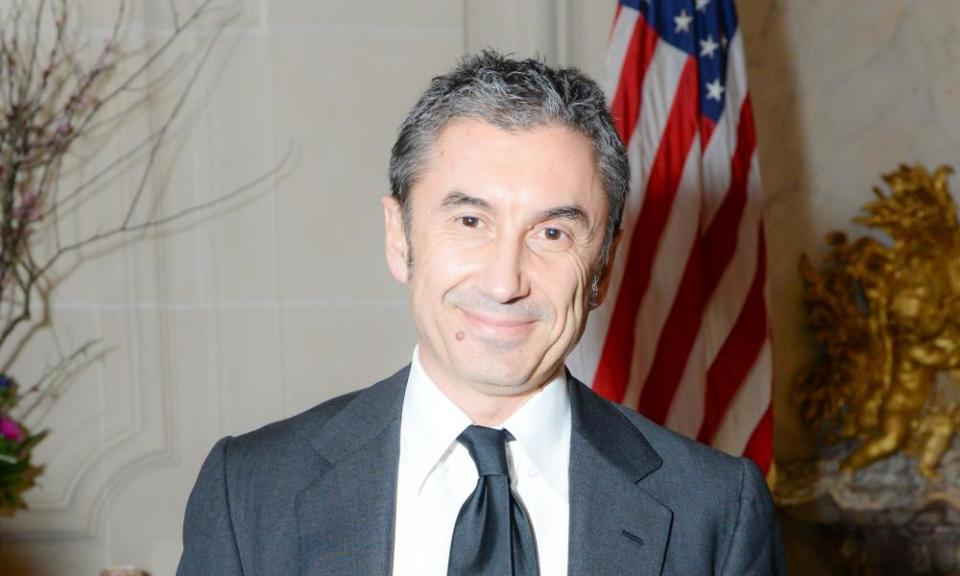London's love affair with Saudi Aramco smacks of Brexit desperation | Nils Pratley

Saudi Aramco is worth somewhere between $1tn and $2tn, depending on whose estimate you prefer. In short, Saudi Arabia’s state-owned oil company is not short of a few dollars. Why on earth, then, would UK government think it necessary to offer Aramco a $2bn loan guarantee?
The official answer is that this is just business as usual. The UK Export Finance agency exists to promote UK exports by making our firms’ goods and services more competitive. The Saudis may not actually need a $2bn credit backstop but, hey, what’s the harm in giving them a prod to buy British? Politics in Saudi Arabia may be in a state of upheaval but Aramco is not the defaulting type.
Well, that’s one explanation. Another is that this is another sop to the Saudis to encourage them to list their oil company in London rather than New York, assuming an international flotation is still in prospect after the arrest of various princes, former ministers and tycoons last weekend.
The listing and loan guarantee are “totally separate,” insists the Treasury. That is becoming a well-used line. The Financial Conduct Authority argued similarly when its sudden interest in relaxing the rules on investor protections for state-owned firms to make it easier for them to secure a “premium” listing in London just happened to coincide with Aramco’s interest.
The UK’s love-in with Aramco smacks of desperation, born of the political desire to score a high-profile post-Brexit “win” for London. But some victories aren’t worth the price, as big fund management houses have been telling the FCA endlessly. Bending the rules on “premium” listings to accommodate Aramco risks long-term damage to the City’s reputation as a place where investors enjoy strong rights.
London shouldn’t need to lower governance standards, and the timing of the Treasury’s $2bn loan guarantee merely deepens the sense of grubby games being played.
Burberry boss’s first collection includes a profit warning
If you think £950 for a nylon rucksack is a little on the steep side, Burberry, maker of said item, has news for you: it’s going upmarket.
The new chief executive, Marco Gobbetti, wants the company to establish itself “firmly” in the luxury end of the fashion market, as opposed to paddling around in the shallows of “contemporary” luxury. By way of illustration, he said rivals can charge 50% more for a standard Oxford polo shirt. Get Burberry’s bargain versions – a snip at £150 – while you still can.
On paper, one can understand why Gobbetti is so keen to “sharpen our brand positioning” and “elevate leather goods.” Truly upmarket brands such as Gucci and Hermes are making a mint. Luxury handbag companies produce 26% operating profit margins, he said, while poor old Burberry currently runs on 17%.
Yet the shares fell 10%. It wasn’t Burberry’s shocking invention of new verbs (“we will wardrobe the customer” – what?) that frightened investors but the cost of Gobbetti’s overhaul. Capital expenditure will be cranked up. Sharpening the brand will also blunt revenues and profits in the short-term. Burberry, having just reported a 24% improvement in profits to £127m at the half-year stage, expects to go sideways for two years.
Once the group has reached Gobbetti’s promised land of “sustainable” returns, revenues will start growing again and there will be a “meaningful” improvement in profit margins. That’s the theory, anyway, but, as with all such reinventions, the short-term financial pain is certain but the eventual rewards are not. Mulberry, albeit on a smaller scale, once tried to boost its handbags into the price stratosphere and the strategy flopped.

Gobbetti brings a more experienced hand yet he still needs a chief designer to replace Christopher Bailey, who is leaving next year and wasn’t even given a walk-on role in Thursday’s City presentation. Bailey seems to be yesterday’s man already, which feels harsh – he wasn’t much cop as chief executive during his brief stint but he had previously hauled the brand out of the doldrums.
For better or worse, it’s the Gobbetti show now. His plan may come good eventually but let’s not miss the obvious: his first collection included a profits warning.
Why is Xavier Rolet leaving LSE? Soon we may know
It’s on: an extraordinary meeting of the shareholders of the London Stock Exchange Group to consider the motion that the chairman be unceremoniously dumped.
The Children’s Investment Fund (TCI), an activist investor with a 5% stake in the LSE, has lost patience. It wanted a straight explanation for why the LSE chief executive, Xavier Rolet, is leaving next year. It hasn’t got one, thus it is calling on all shareholders to vote to remove the chairman, Donald Brydon, and keep Rolet, assuming he’s willing to stay.
This is a fine feud and Brydon has played his hand badly. In today’s world, you simply can’t announce that a well-regarded chief executive is going but not tell shareholders why.
TCI claims Rolet was, in effect, sacked and has been prevented by confidentiality clauses from saying so. We don’t have Brydon’s version of events because neither he nor the LSE will speak. TCI’s method of forcing an answer is aggressive but the tactic is justified. The LSE’s failure to explain was glaring on day one. To maintain the deafening silence for three weeks is ridiculous.
• Follow Guardian Business on Twitter at @BusinessDesk, or sign up to the daily Business Today email here.

 Yahoo Finance
Yahoo Finance 